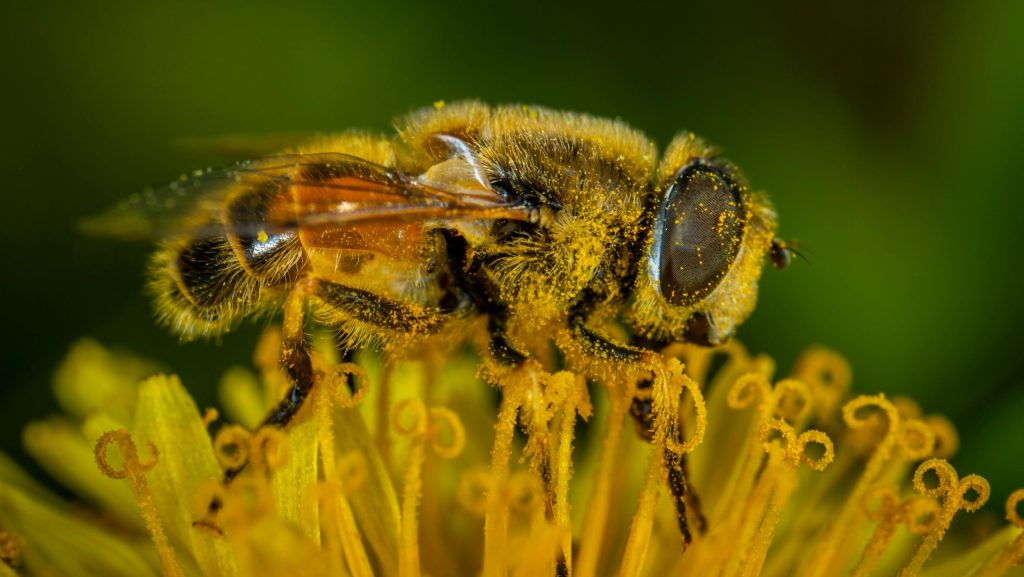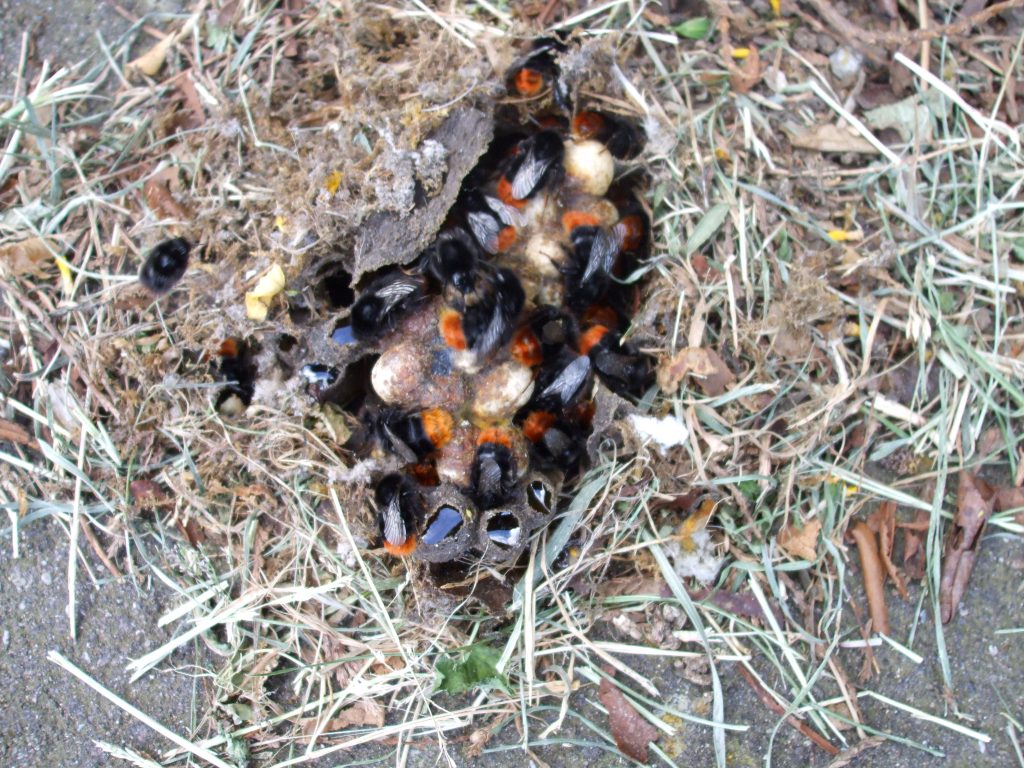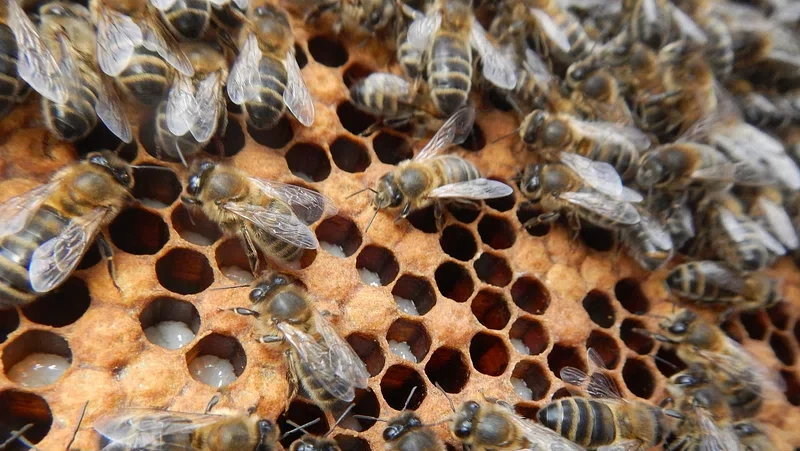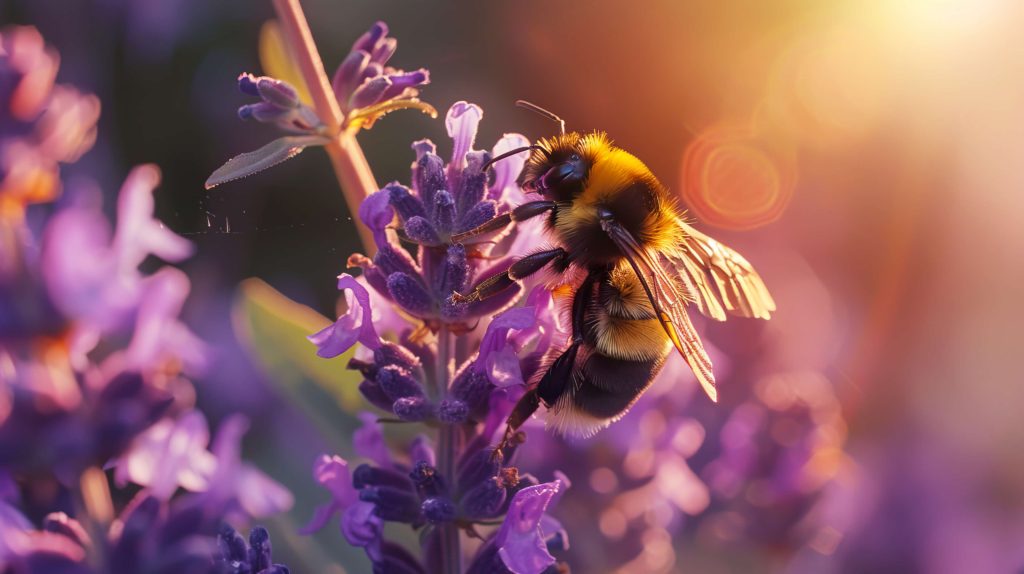Bumblebees are essential pollinators, but their nests around your property can lead to unwanted encounters. Understanding how to prevent bumblebees from nesting can help you avoid these situations while respecting the role bees play in the environment. Below, we provide practical steps and tips for preventing bumblebees from nesting around your property.
 Visit our Species, Control, and DIY Guide sections for additional resources on bed bugs and ways to tackle a bed bug infestation.
Visit our Species, Control, and DIY Guide sections for additional resources on bed bugs and ways to tackle a bed bug infestation.



 By identifying these locations, you can take preventative measures to make your property less inviting for bumblebees.
By identifying these locations, you can take preventative measures to make your property less inviting for bumblebees.


How Can I Prevent Bumblebees from Nesting Around My Property?
Follow these simple yet effective steps to deter bumblebees from nesting around your home:Maintain Your Yard
-
Mow Your Lawn: Regularly mow your lawn and trim overgrown plants to reduce potential nesting sites.
-
Fill Holes: Fill in holes and burrows in the ground to eliminate possible nest locations.
Seal Openings
-
Inspect for Cracks: Inspect your home for cracks in walls, foundations, or roofs and seal them with caulk or other appropriate materials.
-
Cover Vents: Cover vents and openings with fine mesh to prevent bees from entering.
Remove Attractive Features
-
Store Firewood: Store firewood, compost, and garden debris in sealed containers or designated areas away from your house.
-
Avoid Sugary Drinks: Avoid leaving pet food or sugary drinks outside, as these can attract bees.
Use Natural Repellents
-
Plant Repelling Herbs: Plant bee-repelling herbs like mint, eucalyptus, or citronella in your garden.
-
Sprinkle Cinnamon: Sprinkle cinnamon or crushed garlic around potential nesting sites as these smells can deter bees.


Not getting a solution?
Get your free pest control estimate today!What Does a Bumblebee Nest Look Like?
To effectively prevent bumblebees from nesting, it’s important to recognize what their nests look like.Characteristics of Bumblebee Nests
-
Appearance: Bumblebee nests are small, typically about the size of a grapefruit. They often appear messy and are made from wax, grass, or other soft materials.
-
Location: Bumblebees usually nest in hidden spots like abandoned rodent burrows, dense grass, compost heaps, or under sheds. Sometimes, they may even use wall cavities or old birdhouses.
-
Signs of a Nest: If you notice increased bee activity in a specific area, buzzing sounds, or bees entering and exiting a small space, you might have a nest nearby.

How to Identify a Potential Bumble Bee Nesting Site?
Bumblebees typically seek out sheltered areas with access to food and water. They often prefer quiet, undisturbed spots such as garden sheds, compost piles, or dense vegetation. If your property offers these conditions, it may become a desirable location for a nest. Bumblebees tend to nest in cavities or small, sheltered spaces. Here are common areas where they may attempt to build a nest:Common Bumblebee Nesting Sites
-
Unused sheds or outbuildings
-
Piles of wood, leaves, or compost
-
Dense shrubs, tall grass, or overgrown gardens
-
Holes in the ground, such as rodent burrows
How to Prevent Bumblebee Infestation?
Here are several actions you can take to discourage bumblebees from nesting around your property:Preventing Bumblebee Nesting
-
Seal gaps and holes: Inspect the exterior of your home, garage, and sheds for any gaps or holes. Seal them using caulk or mesh to prevent bees from entering.
-
Remove debris: Keep your yard clean and debris-free. Remove piles of leaves, wood, and compost that could become potential nesting sites.
-
Regularly mow lawns: Bumblebees prefer undisturbed areas. Mowing your lawn frequently and trimming overgrown shrubs can deter them from settling.
-
Cover exposed ground: Ground-nesting bees often look for bare patches of soil. Keep your garden beds covered with mulch, and repair holes in the ground to prevent nesting.
-
Limit access to food sources: Bumblebees are attracted to flowering plants. While removing all flowers isn’t practical, consider limiting plantings near your home’s entrance or high-traffic areas.

Natural Deterrents to Keep Bumblebees Away
If you’re looking for non-chemical ways to deter bumblebees, consider the following methods:Natural Bee Deterrents
-
Citronella plants: While citronella is better known for repelling mosquitoes, it can also work on bees. Plant citronella near potential nesting areas to discourage bees from settling.
-
Cucumber peels: Bumblebees dislike the smell of cucumber. Placing cucumber peels near entry points or potential nests may help keep them away.
-
Peppermint oil spray: Dilute peppermint oil in water and spray it around areas where you’ve seen bees. The strong scent of peppermint can serve as a deterrent without harming the bees.





